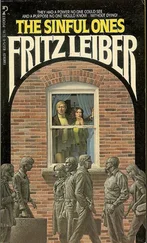Fritz Leiber - The Best of Fritz Leiber
Здесь есть возможность читать онлайн «Fritz Leiber - The Best of Fritz Leiber» весь текст электронной книги совершенно бесплатно (целиком полную версию без сокращений). В некоторых случаях можно слушать аудио, скачать через торрент в формате fb2 и присутствует краткое содержание. Жанр: Фантастика и фэнтези, на английском языке. Описание произведения, (предисловие) а так же отзывы посетителей доступны на портале библиотеки ЛибКат.
- Название:The Best of Fritz Leiber
- Автор:
- Жанр:
- Год:неизвестен
- ISBN:нет данных
- Рейтинг книги:3 / 5. Голосов: 1
-
Избранное:Добавить в избранное
- Отзывы:
-
Ваша оценка:
- 60
- 1
- 2
- 3
- 4
- 5
The Best of Fritz Leiber: краткое содержание, описание и аннотация
Предлагаем к чтению аннотацию, описание, краткое содержание или предисловие (зависит от того, что написал сам автор книги «The Best of Fritz Leiber»). Если вы не нашли необходимую информацию о книге — напишите в комментариях, мы постараемся отыскать её.
The Best of Fritz Leiber — читать онлайн бесплатно полную книгу (весь текст) целиком
Ниже представлен текст книги, разбитый по страницам. Система сохранения места последней прочитанной страницы, позволяет с удобством читать онлайн бесплатно книгу «The Best of Fritz Leiber», без необходимости каждый раз заново искать на чём Вы остановились. Поставьте закладку, и сможете в любой момент перейти на страницу, на которой закончили чтение.
Интервал:
Закладка:
A little to my surprise, the Grissims drank as heavily as the English, though they carried their liquor very well. Emily was the exception to this family pattern, contenting herself with a little sherry and three long, slim reefers, which she drew from an elegant foil package covered with gold script and Lissajous curves, and which she inhaled sippingly, her lips rapidly shuddering with a very faint, low, trilling sound.
Professor Grissim set the pattern by deprecating the reasons for America’s domestic achievements, which I had led off by admitting were far greater than I’d expected. They weren’t due to any peculiar
American drive, he said, and certainly not to any superior moral fiber, but simply to technology and computerized civilization given their full head and unstinting support. The powerful sweep of those two almost mathematical forces had automatically solved such problems as overpopulation, by effortless and aesthetic contraception, and stagnant or warped brain potential, by unlimited semiautomated education and psychiatry—just as on a smaller scale the drug problem had largely been resolved by the legalization of marijuana and peyote, following the simple principle of restricting only the sale of quickly addictive chemicals and those provably damaging to nervous tissue— “Control the poisons, but let each person learn to control his intoxicants, especially now that we have metabolic rectifiers for the congenitally alcoholic.”
I was also told that American extremism, both of the right and left, which had seemed such a big thing in mid-century, had largely withered away or at least been muted by the great surge of the same forces which were making America ever more beautiful and prosperous. Gties were no longer warrens of discontent. Peace marches and Minutemen rallies alike, culminating in the late sixties, had thereafter steadily declined.
While impressed, I did not fall into line, but tried to point out some black holes in this glowing picture. Indeed, feeling at home with the Grissims now and having learned that nothing I could say would shock them into anger and confusion, I was able to be myself fully and to reveal frankly my anti-American ideas, though of course more politely and, I hoped, more tellingly than yesterday—it seemed an age ago —driving from the rocketport.
In particular, I argued that many or most Americans were motivated by a subtle, even sophisticated puritanism, which made them feel that the world was not safe unless they were its moral arbiters, and that this puritanism was ultimately based on the same swollen concern about property and money— industry, hi its moral sense— that one found in the Swiss and Scottish Presbyterians and most of the early Protestants.
“You’re puritans with a great deal of style and restraint and wide vision,” I said. “Yet you’re puritans just the same, even though your Puritanism is light years away from that of the Massachusetts theocrats and the harsh rule Calvin tried to impose on Geneva. In fact,” I added uncautiously, “your puritanism is not so much North European as Roman.”
Smiles crinkled briefly at that and I kicked myself for having myself introduced into the conversation that hackneyed comparison.
At this point Emily animatedly yet coolly took up the argument for America, pointing out the nation’s growing tolerance and aestheticism, historically distinguishing Puritanism from Calvinism, and also reminding me that the Chinese and Russians were far more puritanical than any other peoples on the globe—and not in a sophisticated or subtle way either.
I fought back, as by citing the different impression I’d got of the Russians during my visits in the Soviet
Union and by relaying the reports of close colleagues who had spent time in China. But on the whole Emily had the best of me. And this was only partly due to the fact that the longer I sparred with her verbally, the less concerned I became to win my argument, and the more to break her calm and elicit some sharp emotional reaction from her, to see that pale skin flush, to make those reefer-serene eyes blaze with anger. But I wasn’t successful there either.
At one point Jack came to her aid, mildly demonstrating for American broad-mindedness by describing to us some of the pleasure cities of southern Asia he’d visited on R.&R.
“Bangkok’s a dismal place now, of course,” he began by admitting, “with the Com-g’rillas raiding up to and even into it, and full of fenced-off bombed and booby-trapped areas. Very much like the old descriptions of Saigon la the sixties. As you walk down the pot-holed streets, you listen for the insect hum of a wandering antipersonnel missile seeking human heat, or the faint flap-flap of an infiltrator coming down on a whirligig parachute. You brace your thoughts against the psychedelic strike of a mind-bomb. Out of the black alley ahead there may charge a fifty-foot steel centipede, the remote- controlled sort we use for jungle fighting, captured by the enemy and jiggered to renegade.
“But most of old Bangkok’s attractive features—and the entrepreneurs and girls and other entertainers that go with them—have been transferred en masse to Kandy and Trincomalee in Ceylon.” And he went on to describe the gaily orgiastic lounges and bars, the fresh pastel colors, the spicy foods and subtly potent drinks, the clean little laughing harlots supporting their families well during the ten years of their working life between fifteen and twenty-five, the gilded temples, the slim dancers with movements stylized as their black eyebrows, the priests robed in orange and yellow.
I tried to fault him in my mind for being patronizing, but without much success.
“Buddhism’s an attractive way of life,” he finished, “except that it doesn’t know how to wage war. But if you’re looking only for nirvana, I guess you don’t need to know that.” For an instant his tough face grew bleak, as if he could do with a spot of nirvana himself, and the shadows gathered around him and the others more thickly.
During the following off-lecture evenings we kept up our fireplace talks and Emily and I returned more than once to our debate over puritanism, while the rest listened to us with faint, benevolent smiles, that at times seemed almost knowing. She regularly defeated me.
Then on the sixth night she delivered her crowning argument, or celebrated her victory, or perhaps merely followed an impulse. I had just settled myself in bed when the indirect lightning of my “doorbell” flooded the room with brief flashes, coming at three-second intervals, of a rather ghastly white light. Blinking, I fumbled on the bedside table for the remote control of the room’s appliances, including tri-V and door, and thumbed the button for the latter.
The door moved aside and there, silhouetted against the faint glow of the hall, was the dark figure of
Emily, like a living shadow. She kept her finger, however, on the button long enough for two more silent flashes to illuminate her briefly. She was wearing a narrow kimono—Jack’s newest gift, she later told me —and her platinum hair, combed straight down like an unrippling waterfall, almost exactly matched the silvery, pale gray silk. Without quite overdoing it, she had made up her face somewhat like a temple dancer’s—pale powder, almost white; narrow slanting brows, almost black; green eye-shadow with a pinch of silvery glitter; and the not-quite-jarring sensual note of crimson lips.
She did not come into my room, but after a pause during which I sat up jerkily and she became again a shadow, she beckoned to me.
I snatched up my dressing gown and followed her as she moved noiselessly down the hall. My throat was dry and constricted, my heart was pounding a little, with apprehension as well as excitement. I realized that despite my near week with the Grissims, a part of my mind was still thinking of the professor and his wife as a strait-laced colonel and his lady from a century ago, when so many retired army officers lived in villas around San Antonio, as they do now too around the Dallas-Ft. Worth metropolitan area.
Читать дальшеИнтервал:
Закладка:
Похожие книги на «The Best of Fritz Leiber»
Представляем Вашему вниманию похожие книги на «The Best of Fritz Leiber» списком для выбора. Мы отобрали схожую по названию и смыслу литературу в надежде предоставить читателям больше вариантов отыскать новые, интересные, ещё непрочитанные произведения.
Обсуждение, отзывы о книге «The Best of Fritz Leiber» и просто собственные мнения читателей. Оставьте ваши комментарии, напишите, что Вы думаете о произведении, его смысле или главных героях. Укажите что конкретно понравилось, а что нет, и почему Вы так считаете.









